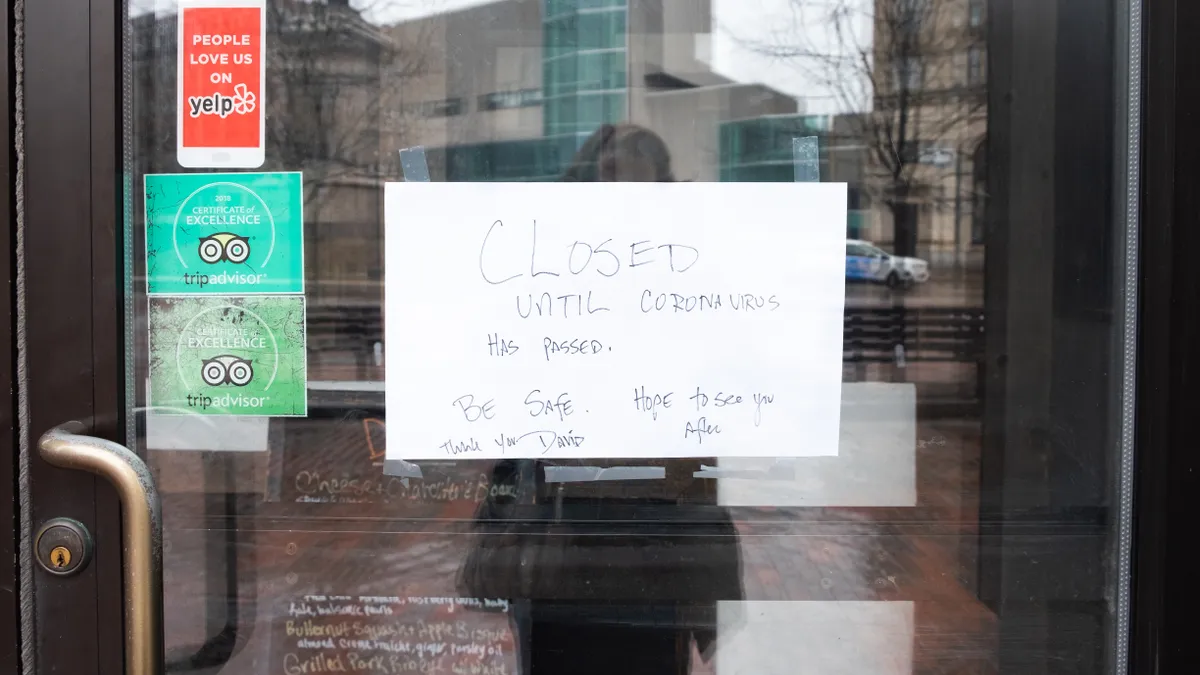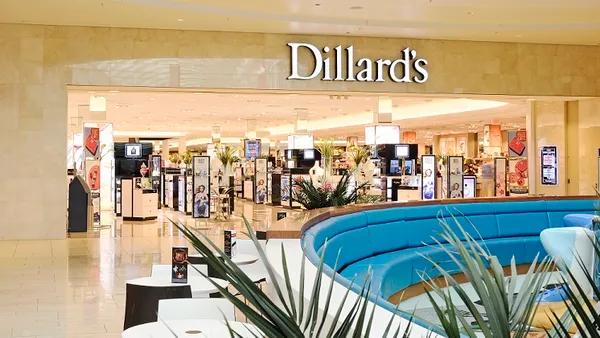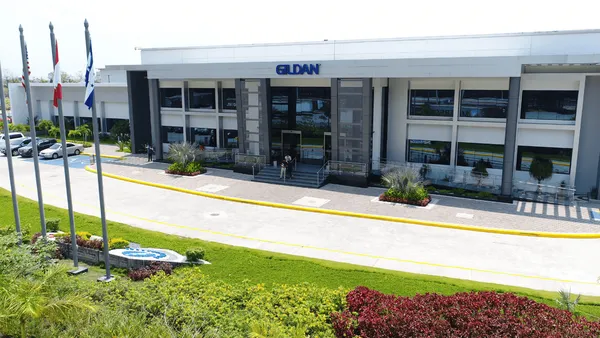Dive Brief:
- New York City Mayor Bill de Blasio told press Tuesday that the city could shut down nonessential businesses sometime after Christmas as COVID-19 cases surge dangerously in the city.
- The mayor noted that the state of New York would make the final call on a closure order. "I've been having this conversation repeatedly with the Governor. Our teams are talking," de Blasio said, according to a transcript.
- He added that a shutdown would likely resemble that from the spring but would last a "matter of weeks" with help from "some good luck and hard work and with the vaccine starting to help us."
Dive Insight:
Dire warnings about COVID-19 surges in the fall and winter are coming to pass as hospitalizations top 100,000 in the U.S., the total case count approaches 17 million, and more than 300,000 people have died of the disease.
"We are just on the verge of a huge breakthrough with the vaccine, but we're also dealing with a second wave," de Blasio said. "We got to beat it back. We got to protect lives, we've got to protect our hospitals. So I think, unfortunately I don't say it with anything but sorrow, but I do think [a shutdown is] needed."
This spring's shutdown, which lasted nearly two months for some chains, put a massive financial strain on retailers, large and small, deemed nonessential. For some, the collapse of revenue from physical stores was so painful it sent them into bankruptcy court.
For most large chains that shut down their entire footprint, they weathered the period by drawing down their revolvers, furloughing employees, halting product orders, negotiating reductions and postponements of rent, cutting executive pay and shareholder dividends, and other measures. Those that had the capacity to do so pivoted to digital sales and curbside delivery, though in most cases it wasn't enough to offset the loss of store sales.
Essential retailers like grocers and mass merchants allowed to stay open created safety practices that the industry as a whole hoped would prevent another shutdown. Among them were mask requirements, foot traffic limits, and beefed up cleaning and sanitation.
Now the country faces a surge in COVID-19 cases and hospitalizations as a government-approved vaccine only just begins distribution to the very first groups set to receive it. Other states and regions may follow New York's lead as their hospitals come under strain with COVID-19 patients.
The National Retail Federation has pushed for more transparency in how shutdown and reopening decisions are made at the state level. The trade group this fall filed public information requests in New Mexico and California around store closures.
"California's large and small business owners cannot effectively plan and prepare to serve their customers when the government can adjust the playing field weekly based on unknown sources of information," NRF General Counsel and Chief Administrative Officer Stephanie Martz said in a press release in September after filing an information request in California.
Many observers have expected a possible patchwork of state and regional closures this fall if the coronavirus continued its spread. Much of both the closure and reopening periods this year were marked by local and state decisions, determined by health metrics or politics, or a combination. That may well be how the current period plays out. As New York contemplates another shutdown of nonessential business, other states are staying open even as cases surge.













